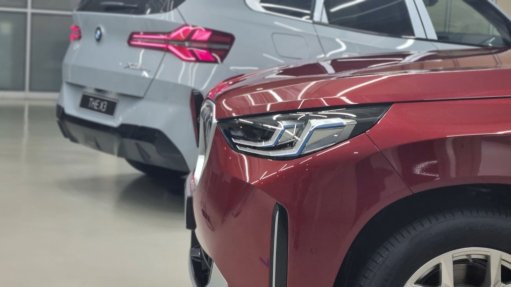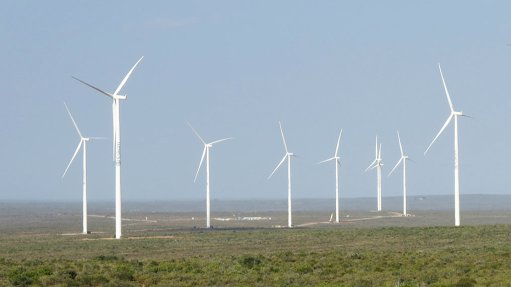You break it, you buy it
Beautiful to look at, lovely to hold, but if you should break it, consider it sold.” This rhyme evokes memories of the terror I would experience as a youngster whenever I was about to enter a shop displaying this message. Believe you me, to my young mind, this was not meant to solicit humour, but was very much a threat, a promise.
Each time I pushed the door open, which, without exception, would trigger a bell, thus adding to the tension, Mom would instruct: “Hands behind your back”, and “look with your eyes, not with our hands”. I was conditioned to walk in the centre of the isle to avoid the risk of brushing against anything and resist the urge to touch anything, which would increase the risk of inadvertent damage infliction and forced ownership.
If only South Africa’s politicians were taught the same thing about economics. Well, if only they were taught economics and to respect the invisible hand. Alas, the South African economy is broken. So, one would expect that its custodians should own it. They are definitely not acting with the ceded responsibility of taking care of and protecting our broken economy.
Let me repeat: these custodians should own the economy. They should own and acknowledge the mess that is now the South African economy.
The sad thing is that the South African economy has been used to benefit only a few individuals at the collective expense of all South Africans.
It is all about economics – economics is not difficult; it is common sense. But then again, common sense is not as common as you might think. In fact, it is rare, extremely rare.
As I wrote this piece, news had come through that the South African economy had slumped into a recession – the second in two years. While there is no formal economic definition for ‘recession’, it is accepted to be two consecutive quarterly contractions of an economy. Why are recessions so rare? This is simply because it entails a quarter-on-quarter comparison. So, a second contraction has to be a further contraction of the quarter before, which tends to be less likely, since the second tends to generally be characterised by an improvement on the preceding quarter.
How bad is the situation? This is South Africa’s third recession since 1994, with the previous two having been recorded in 2018 and 2019. The South African economy grew by 0.2% in 2019 – the lowest rate since 2009 – and this was a decline from 0.8% in 2018. For the sixth consecutive year, the South African economy has grown by less than 2%. Seven out of ten industries contracted in the fourth quarter of 2019, with agriculture taking the biggest hit, shrinking by 7.6%, followed by transport and communication (–7.2%), construction (–5.9%), electricity, gas and water (–4.0%) and trade (–3.8%). The only increases were in personal services (0.7%), mining (1.8%) and finance (2.7%).
So, how does South Africa get out of recession? What is needed, in a word, is ‘investment’. But the question is: Who would be willing to invest in South Africa? Let us be honest, even South Africa’s businesspeople are not willing to invest, unless they are guaranteed they will be able to earn a return. Do not expect foreign investors to be any different, with the added concern that they would not necessarily be as loyal to South Africa as its own businesspeople would be? Investment is not charity. Could the lack of foreign direct investment explain why some are proposing that pension funds be forced to invest in the economy?
An investment decision is also dependent on the assessment of credit ratings agencies, whose patience with the South African government and its professed ‘revised’ and ‘redesigned’ economic policy may well be waning. How long will it be before they call “Junk!!!”?
To those that got us here, Albert Einstein offers some sobering words: “We cannot solve our problems with the same thinking we used when we created them.”
Article Enquiry
Email Article
Save Article
Feedback
To advertise email advertising@creamermedia.co.za or click here
Press Office
Announcements
What's On
Subscribe to improve your user experience...
Option 1 (equivalent of R125 a month):
Receive a weekly copy of Creamer Media's Engineering News & Mining Weekly magazine
(print copy for those in South Africa and e-magazine for those outside of South Africa)
Receive daily email newsletters
Access to full search results
Access archive of magazine back copies
Access to Projects in Progress
Access to ONE Research Report of your choice in PDF format
Option 2 (equivalent of R375 a month):
All benefits from Option 1
PLUS
Access to Creamer Media's Research Channel Africa for ALL Research Reports, in PDF format, on various industrial and mining sectors
including Electricity; Water; Energy Transition; Hydrogen; Roads, Rail and Ports; Coal; Gold; Platinum; Battery Metals; etc.
Already a subscriber?
Forgotten your password?
Receive weekly copy of Creamer Media's Engineering News & Mining Weekly magazine (print copy for those in South Africa and e-magazine for those outside of South Africa)
➕
Recieve daily email newsletters
➕
Access to full search results
➕
Access archive of magazine back copies
➕
Access to Projects in Progress
➕
Access to ONE Research Report of your choice in PDF format
RESEARCH CHANNEL AFRICA
R4500 (equivalent of R375 a month)
SUBSCRIBEAll benefits from Option 1
➕
Access to Creamer Media's Research Channel Africa for ALL Research Reports on various industrial and mining sectors, in PDF format, including on:
Electricity
➕
Water
➕
Energy Transition
➕
Hydrogen
➕
Roads, Rail and Ports
➕
Coal
➕
Gold
➕
Platinum
➕
Battery Metals
➕
etc.
Receive all benefits from Option 1 or Option 2 delivered to numerous people at your company
➕
Multiple User names and Passwords for simultaneous log-ins
➕
Intranet integration access to all in your organisation

















